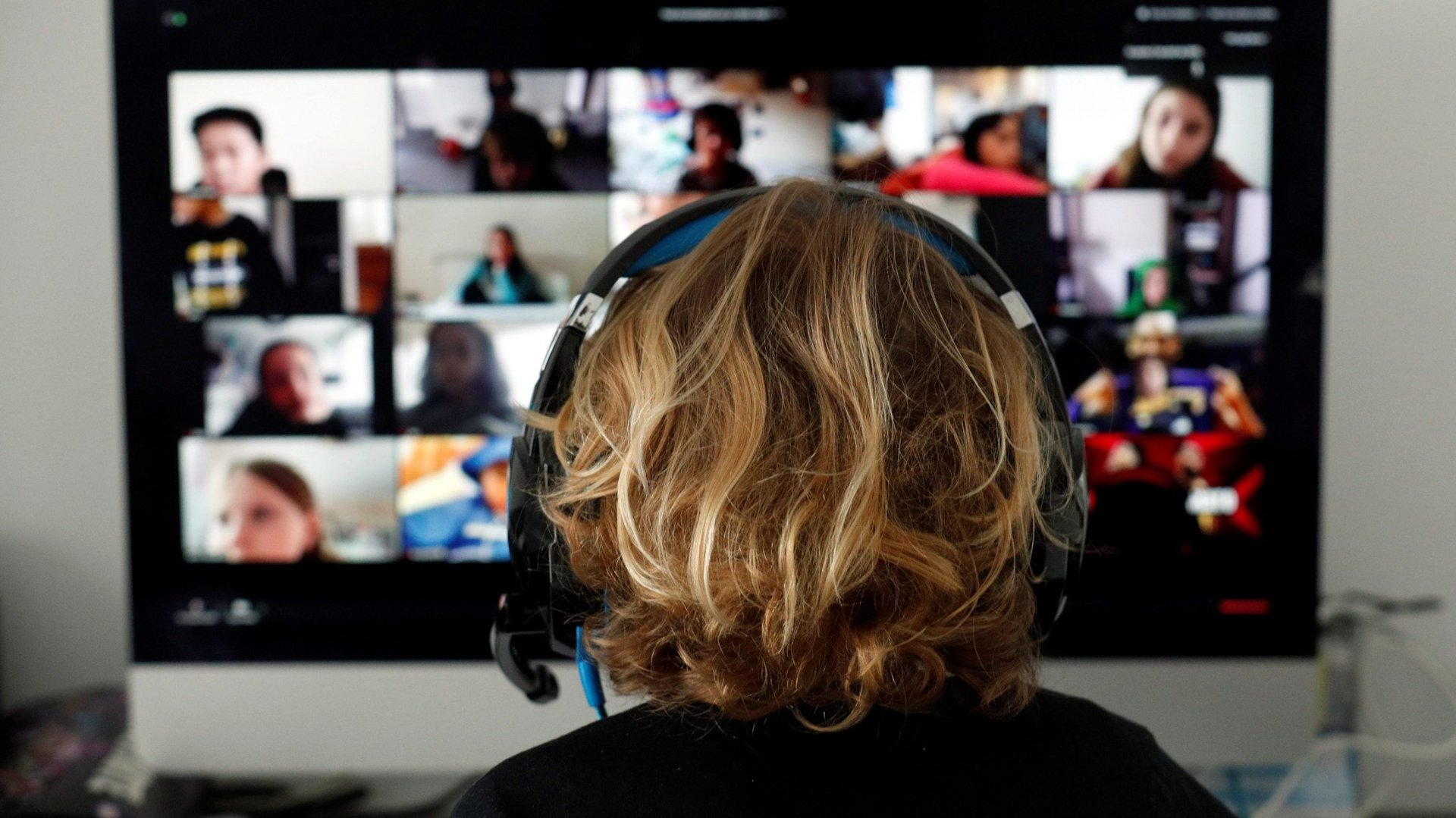The art of doing a remote job interview
Finding and interviewing for a job is stressful under the best of circumstances. Now the era of coronavirus and social distancing is adding new pressures to the process.


Finding and interviewing for a job is stressful under the best of circumstances. Now the era of coronavirus and social distancing is adding new pressures to the process.
First, workers have to be lucky enough to find a job opening in the midst of staggering unemployment. Then, should they land an interview, they must be prepared to convince potential employers of their exceptional skills and charm via phone or video chat—mediums that many people find awkward or anxiety-inducing.
Of course, job interviews via phone or video chat are already common practice in many industries. But these typically happen earlier in the screening process, finally leading up to the big day filled, once upon a time, with handshakes and offers to get you a glass of water. If you’re among the job-seekers concerned about how to convey your professional prowess from a distance, here are a few tips.
Set the stage
Kristine, a 52-year-old woman who lives an hour outside of Phoenix, Arizona, recently told a Facebook group about interviewing over Zoom for a job as a pharmacy benefits manager. She spent the day before the interview arranging her spot at the dining room table to avail herself of the best light and angles.
“I had prepared for it because I don’t think anybody looks good on those things,” she told Quartz when we reached out, “and I know even though I have the qualifications, people judge on looks.” Kristine, who asked that we not use her last name so as not to jeopardize her chances of being hired (she had not yet heard back from the firm she interviewed with), said she positioned herself in front of the sliding glass door in the dining room, drew a shade, opened a side window and turned on the kitchen light, testing all of it at the same time of day when her interview would be taking place.
She also elevated her laptop on a pile of books and tilted the screen down so she could make eye contact with the camera, skirting a common pitfall for video-chat novices.
Other common-sense tips for preparing yourself, and your surroundings, include getting rid of visible clutter and giving your technology a test-run, to be sure that your wifi or phone connection is clear in the room you’ll be using and that you know the ins and outs of Zoom or Skype. If you’re worried you’ll forget about making eye contact, consider putting a pair of googly eyes just above the camera on your laptop to remind you where to look, as Moment’s Alexa Curtis advised in a blog post on Medium.
The power of self-reflection
If your interview is over the phone, good news: You don’t have to worry about whether your would-be new boss can see your unmade bed in the background. The downside, though, is that you may have more trouble interpreting the emotional tenor of the conversation.
“We get a lot of information nonverbally from people,” said Tara Well, an associate professor of psychology at Barnard College whose research focuses on mirrors and reflections. “You might find yourself reaching for how [your comments] are landing with people. You’re creating all sorts of theories about what people are thinking about you in the silence, because you can’t see them smiling or nodding or whatnot,” she said in a phone interview with Quartz at Work, in which we were definitely nodding along.
One great trick, she said, is to position yourself in front of a mirror so that you can watch yourself while you’re on the phone. “You can at least reassure yourself by giving yourself feedback,” Well explained. If you see yourself looking happy and energized, you can assume that that’s how you’re coming across, too.
Remember that your interviewer is a human being, too
Just as important as proving that you have the qualifications for a job is showing that you’re the kind of person who employers will want to work with. While it can be a bit trickier to showcase your personality over phone or video chat, the fact that you and your potential employer are conducting a job interview in the midst of a pandemic can be a good bonding opportunity.
“Take the extra time at the beginning of the call to establish a human connection,” said Kim Scott, co-founder of the executive education company Radical Candor, based on her best-selling book of the same name. “Say, I know this is a difficult time, how are you doing, who are you sheltering in place with?”
Talking a bit about a shared experience, like weathering a pandemic, will help you connect with your interviewer, and it’s bound to make you feel a little more comfortable, too.